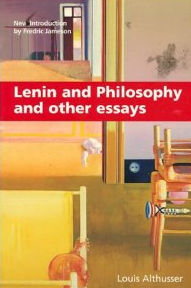![]() Steven Ramey occasionally writes blog posts for HuffPost Religion. Read his latest blog “Constitutional Freedoms and Defining Religion” here.
Steven Ramey occasionally writes blog posts for HuffPost Religion. Read his latest blog “Constitutional Freedoms and Defining Religion” here.
“Anchors Away!: Or, Can the Subaltern Get a Soundbite?”
Something interesting happened when famous comic bad boy Russell Brand showed up for an interview on MSNBC’s Morning Joe and it’s been making the rounds online ever since. Hosted by Joe Scarborough and Mika Brzezinski, the morning show is made of a roundtable of pundits and talking heads, mostly discussing politics and current events while making daily dips into pop culture. And while the co-hosts certainly have their soapboxes (Mika has famously made a second job out of railing against obesity, and Joe was a state representative, for crying out loud), they pride themselves on being serious reporters interested in providing a balance of perspectives when talking about an issue. Continue reading ““Anchors Away!: Or, Can the Subaltern Get a Soundbite?””
Marginalia Review of Books

Monica Miller has recently joined Marginalia Review of Books as a contributing editor. Marginalia provides substantive reviews on academic literature concerning history and religion within various fields of study. Miller’s primary role will be helping to develop reviews, essays, and op-eds concerning the intersection of religion and popular music and also identity in the study of religion.
Bloomsbury Advances in Religious Studies
 Craig Martin recently joined the series editors for the Bloomsbury Advances in Religious Studies monograph series. Its volumes all aim to clarify the role and place of Religious Studies in the academy, with theoretical aspects underscored through their application to the actual study of religions, often in the form of frontier research.
Craig Martin recently joined the series editors for the Bloomsbury Advances in Religious Studies monograph series. Its volumes all aim to clarify the role and place of Religious Studies in the academy, with theoretical aspects underscored through their application to the actual study of religions, often in the form of frontier research.
Supplements to MTSR
 Russell McCutcheon is one of the three series editors for a newly founded monograph series with Brill of the Netherlands: Supplements to MTSR.
Russell McCutcheon is one of the three series editors for a newly founded monograph series with Brill of the Netherlands: Supplements to MTSR.
The series considers books for publication that explicitly address issues of theory (whether explanatory or critique) and methodology (the study, not simply the use, of method) in the academic study of religion. The first volume contracted in the series is a retrospective volume celebrating MTSR‘s 25th anniversary.
Marketing and Competing Essentialisms
 An Idaho company has demonstrated the marketing power of a little religious studies knowledge, producing Jihawg Ammo, which is coated in pork-infused paint. The company asserts, “With Jihawg Ammo, you don’t just kill an Islamist terrorist, you also send him to hell. That should give would-be martyrs something to think about before they launch an attack.” The company tags the product “Peace through pork” because it “promotes peace through the natural deterrence of pork infused ballistic coating.” Continue reading “Marketing and Competing Essentialisms”
An Idaho company has demonstrated the marketing power of a little religious studies knowledge, producing Jihawg Ammo, which is coated in pork-infused paint. The company asserts, “With Jihawg Ammo, you don’t just kill an Islamist terrorist, you also send him to hell. That should give would-be martyrs something to think about before they launch an attack.” The company tags the product “Peace through pork” because it “promotes peace through the natural deterrence of pork infused ballistic coating.” Continue reading “Marketing and Competing Essentialisms”
The Ambivalence of Intellectuals

“intellectuals are holders of cultural capital and, even if they are the dominated among the dominant, they still belong among the dominant. That is one of the foundations of their ambivalence….”
So wrote the French sociologist Pierre Bourdieu (d. 2002), in the closing lines to a 1996 address entitled “The Myth of ‘Globalization’ and the European Welfare State” (published in his little book, Acts of Resistance [29-44]). I think these lines are well wroth remembering when we read scholarship that writes against the grain, as some call it, or which undermines elite narratives by doing history from the ground up (what we once called social history). For, despite what they likely see as their own noble goals, the supposedly silenced voices that they recover are the products of their own travel grants, sabbaticals, and the privilege that comes with earning ones living by writing and talking about features of other people’s lives that strike us as interesting. Continue reading “The Ambivalence of Intellectuals”
“Hey You!”
 Louis Althusser’s (d. 1990) essay collection, Lenin and Philosophy and Other Essays (1968; English translation 1971), in particular the essay entitled “Ideology and Ideological State Apparatuses (Notes Towards an Investigation),” is crucial for anyone interested in rethinking the common perception of identity-as-expressed-quality as instead being the interiorized result of prior and assorted (i.e., among actors of varying authority) social acts of identification and interaction (as briefly suggested in this post). As Althusser wrote in that essay:
Louis Althusser’s (d. 1990) essay collection, Lenin and Philosophy and Other Essays (1968; English translation 1971), in particular the essay entitled “Ideology and Ideological State Apparatuses (Notes Towards an Investigation),” is crucial for anyone interested in rethinking the common perception of identity-as-expressed-quality as instead being the interiorized result of prior and assorted (i.e., among actors of varying authority) social acts of identification and interaction (as briefly suggested in this post). As Althusser wrote in that essay:
I shall then suggest that ideology ‘acts’ or ‘functions’ in such a way that it ‘recruits’ subjects among the individuals (it recruits them all), or ‘transforms’ the individuals into subjects (it transforms them all) by that very precise operation which I have called interpellation or hailing, and which can be imagined along the lines of the most commonplace everyday police (or other) hailing: ‘Hey, you there!’
You Made Me What I Am Today
 National Public Radio’s science correspondent, Shankar Vedantam, reported yesterday on some empirical research on the effects of people doing those patterned and repetitive, rule governed behaviors that we call rituals.
National Public Radio’s science correspondent, Shankar Vedantam, reported yesterday on some empirical research on the effects of people doing those patterned and repetitive, rule governed behaviors that we call rituals.
You can listen to the story here.
The punchline is that, according to researchers at the Harvard Business School (hardly the only place doing empirical, experimental research on ritual, of course), rituals like singing “Happy Birthday to You” and blowing out candles on the cake prompt people to report that, when they later eat it, the cake is more satisfying and tastes better (and that they’re even willing to pay more for it). As Vedantam sums up the findings: “Rituals seem to increase anticipation and make people more mindful of what they were eating. Performing a ritual before you eat a carrot apparently makes the carrot more tasty than it was before.” Continue reading “You Made Me What I Am Today”
WE WON!
 One of the most interesting ways that we talk about ourselves, in my opinion, lies in the ways that we think we’re not talking about ourselves. For instance, in the courses that I teach on gender, students constantly remark that “society tells us that women need to wear makeup and tight clothing to be perceived as beautiful” at the same time as they sit before me (in makeup and tight clothing) talking about both “oppressive” practices. Continue reading “WE WON!”
One of the most interesting ways that we talk about ourselves, in my opinion, lies in the ways that we think we’re not talking about ourselves. For instance, in the courses that I teach on gender, students constantly remark that “society tells us that women need to wear makeup and tight clothing to be perceived as beautiful” at the same time as they sit before me (in makeup and tight clothing) talking about both “oppressive” practices. Continue reading “WE WON!”
